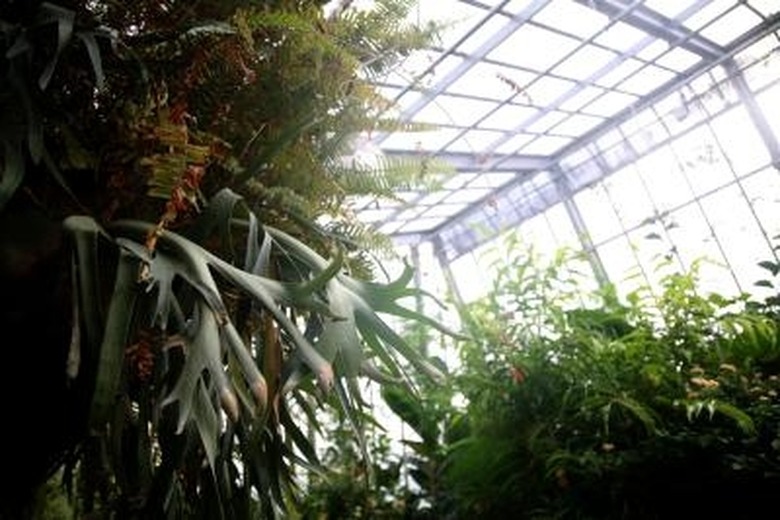How To Heat Small Greenhouses Without Electricity
Things Needed
- Measuring tape
- Calculator
- 55-gallon black barrels
- Sheet metal or white plastic
- Aviation snips
- Nails or screws
- Hammer or drill with screwdriver bit
- Hose
- Caulk
- Weatherstripping
Tip
In areas with extremely cold and windy winters, invest in a propane radiant heater to supplement the passive solar heating system. Many propane radiant heaters require no electricity to run.
For many gardeners, it is not economical to heat small greenhouses with electricity, because the value of the plants grown during the winter does not offset the cost of the heating. Also, there may not be a source of power nearby, resulting in additional cost to run electricity to the greenhouse in the first place. Fortunately, you can avoid the extra cost and take advantage of an existing power source to heat your small greenhouse by trapping the sun's energy and heat in black plastic barrels full of water — a process called passive solar heating.
Step 1
Measure the total number of square feet of glass or plastic on the exterior of your greenhouse. This will allow you to calculate the size of the passive solar heating system that you need.
Step 2
Multiply the square feet of glass or plastic in your greenhouse by 5. The result is the number of gallons of water, stored in 55-gallon black barrels, that you need in order to collect and store solar energy for your passive solar heating system. Divide the result by 55 to determine how many barrels you need.
Step 3
Line the interior of the north wall of your greenhouse with reflective material such as sheet metal or white plastic, cut to size with aviation snips. Nail the material in place if your greenhouse has a wood frame, or screw it in place if the greenhouse has a metal frame.
Step 4
Place the black barrels next to the north wall with a 6-in. gap between the barrels and wall. Use a hose to fill the barrels with water. Stack a second layer of barrels on top of the first, if necessary, to fit them all in.
Step 5
Caulk all joints and gaps in the greenhouse. Install weatherstripping around doors and along the seam where the glass or plastic meets the foundation.
